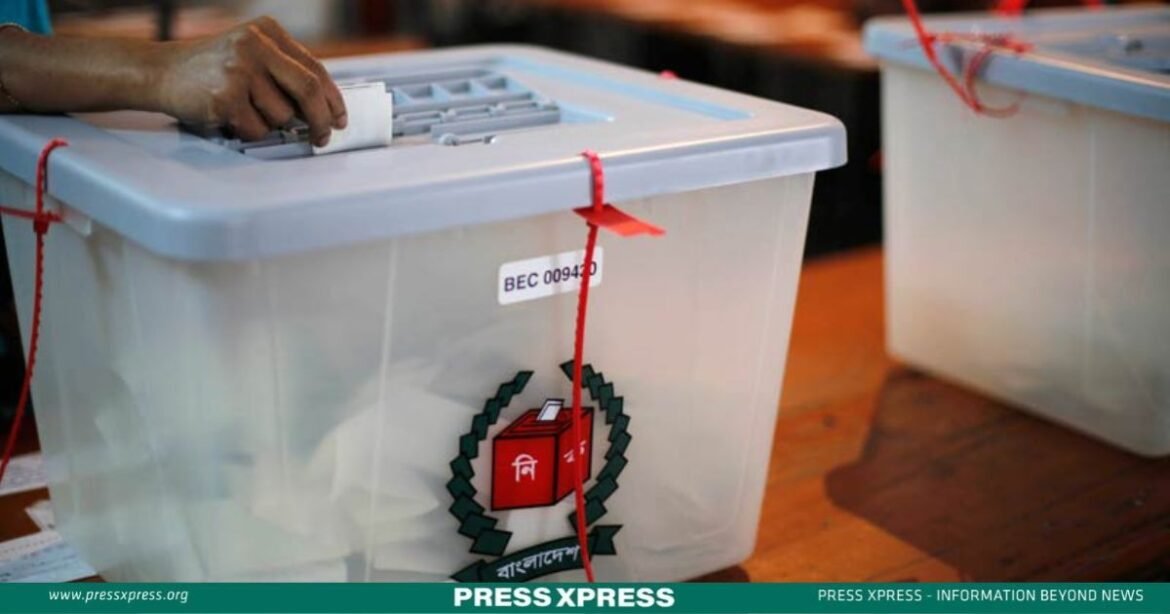Former Indian High Commissioner to Bangladesh, Pankaj Saran, asserted that the people and institutions of Bangladesh should determine the process of their elections, emphasizing that no external entity has the right to dictate election procedures. Speaking at the Zahur Hossain Chowdhury Memorial Lecture-2023 (18th December 2023) on “Bangladesh-India Relations: Role Model of Relations,” Saran expressed India’s hope for a peaceful and people-driven election in Bangladesh, underscoring the importance of self-determination and acceptance of election outcomes. He also said India is a big democratic country but is not exporting democracy to other countries. While Pankaj Saran said the election was an internal matter of Bangladesh.
You can also read: Symbol Allotment Marks Start of Campaigning
“I don’t think anyone has the right or no one has been given the mandate in today’s world to issue judgments on the election process,”
-Pankaj Saran, Former Indian Envoy to Bangladesh
Pankaj Saran also highlighted the successful aspects of the Bangladesh-India relationship over the past 15 years, attributing it to political will and improved border security. Saran outlined areas for future collaboration, including poverty alleviation, employment creation, trade balance, climate challenges, and border management. He also addressed the need for candid discussions on issues such as illegal migration, emphasizing the importance of a broad-based relationship with mutual benefits for the people.
India’s Remarkable Diplomacy About Bangladesh’s Election
India’s diplomatic activity regarding the Bangladesh National Assembly elections in 2024 is quite remarkable.
Earlier, Indian Foreign Ministry spokesperson Arindam Bagchi clarified that India’s position on the Bangladesh issue remains the same even after the announcement of the election schedule. On November 16, 2023, he said this at the regular weekly press conference in New Delhi.
On November 10, a two-plus-two meeting between the foreign and defense ministers of the United States and India was held in the capital of India. In this meeting, India’s position on Bangladesh’s elections was highlighted. In a special press conference after the ‘two-plus-two’ meeting of the foreign and defense ministers of the world’s two largest democracies on November 12, Indian Foreign Secretary Vinay Mohan Kwatra said that they had ‘clearly’ highlighted his government’s position on Bangladesh in the meeting.
When asked about the US’s ‘concern’ about free and fair elections in Bangladesh, Vinay Kwatra said, ‘We have no place to comment on the policies of any third country. The election of Bangladesh is their internal matter. The people of that country will decide their own future.’
India’s stance on Bangladesh elections is not new. The Indian government has held meetings with the Awami League, BNP, and Jatiya Party in the last few months. Meanwhile, BNP held a meeting at the Indian Embassy in Dhaka, and Awami League and Jatiya Party delegations visited Delhi for the meeting. This is the first such meeting with opposition parties in India and Bangladesh in more than a decade.
This underscores India’s respect for Bangladesh’s sovereignty, portraying a friendly ally rather than an external influencer.
USA’s Opinion About Bangladesh’s Election
The United States has started various activities about the Bangladesh election. The country made it clear by announcing a new visa policy for Bangladeshis.
Over the past few months leading up to Bangladesh’s elections, the USA has demonstrated significant interest. The visit of at least 15 high-ranking US officials to Bangladesh in 2023 attests to the dedicated efforts by the USA in connection with the polls.
Additionally, the country has consistently incorporated discussions about Bangladesh’s election into its foreign policy briefings. The proactive stance of the US ambassador in Dhaka, Peter Haas, in exerting influence over the polls has not gone unnoticed. This level of commitment prompts questions about the USA’s motives and interests.
Global Perspectives About Bangladesh’s National Election
Russia, and China, asserted that the election is Bangladesh’s internal affair, diverging from the US perspective. They also accused the United States of interference. France, Germany, the United Kingdom, Canada, Italy, Norway, Netherlands, Switzerland, and Japan each have unique visions, strategic goals, and priorities regarding Bangladesh. In contrast to the USA, the EU appears less active compared to the USA. The EU has stated that the Election Commission (EC) will carry out its responsibilities.
Recently, Canadian Member of Parliament Chandra Arya praised Bangladesh’s developmental journey. MP Chandra noted, “Bangladesh has experienced substantial economic growth over the past few years, characterized by stability and certainty.”
Russia and China have opposed the USA’s attempts to interfere in Bangladesh’s politics. Russian Foreign Ministry Spokesperson Maria Zakharova accused US Ambassador Peter Haas in Dhaka of assisting opposition parties in organizing anti-government protests in Bangladesh.
Chinese Ambassador Yao Wen expressed optimism about Bangladesh’s future being determined by its own people, reaffirming China’s commitment to non-intervention and expressing keen interest in maintaining cooperation and stability following the upcoming election. On November 15th, Japan signed a $3.82 million deal to provide patrol boats and coastal radar for Bangladesh’s military under Japan’s official Security Assistance Program. On September 11, French President Emmanuel Macron visited Bangladesh. During his meeting with Prime Minister Sheikh Hasina, he stated, “Based on democratic principles and the rule of law, in a region facing new imperialism, we want to propose a third way – with no intention to bully our partners or lead them into an unsustainable scheme.” This indicates France’s respect for Bangladesh’s internal affairs and continued strong diplomatic ties.
Analyzing all these scenarios, one could assert that the allies of the USA are no longer unquestioningly following the USA, as Bangladesh has emerged as a strong player on the global stage, and it is too risky to ignore its significance.


